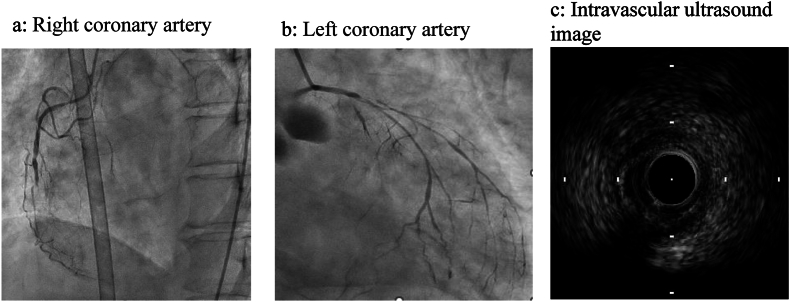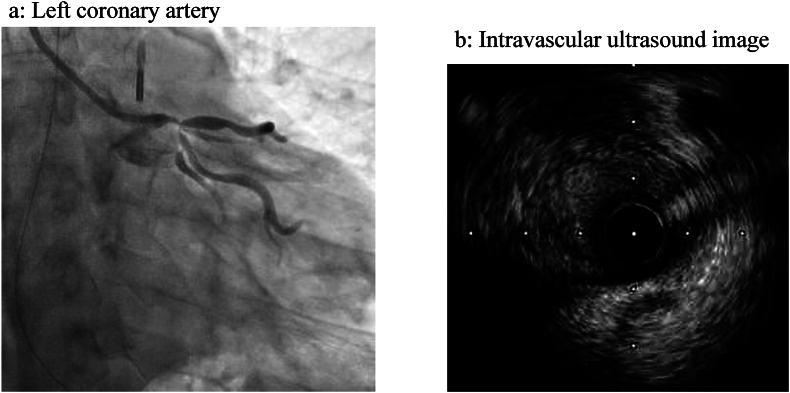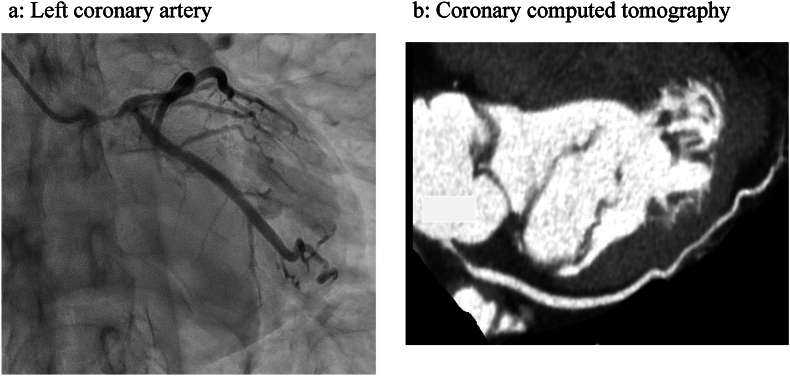Frequency of ischemic cardiac events in patients receiving long-term multikinase inhibitor: A report of three cases
IF 2.8
3区 医学
Q1 NURSING
引用次数: 0
Abstract
Objective
To investigate the incidence and characteristics of ischemic cardiac events, specifically major adverse cardiac events (MACE), in patients undergoing long-term treatment with multikinase inhibitors (MKIs) such as lenvatinib and sorafenib.
Methods
A single-center retrospective analysis was conducted on 41 patients treated with lenvatinib or sorafenib for more than one year at our institution from 2015 to 2022. Patient records were reviewed to collect data on demographics, cancer type, cardiovascular risk factors, MKI treatment duration, and MACE incidence. MACE events, defined as acute heart failure, fatal arrhythmia, acute myocardial infarction, and coronary revascularization, were analyzed to determine potential correlations with MKI therapy.
Results
Among the 41 patients, three (7.3%) developed MACE, presenting as acute heart failure, fatal arrhythmia, and acute myocardial infarction, all associated with significant coronary artery stenosis. Notably, none of these patients had a prior history of cardiovascular disease. Despite variations in clinical presentation, all cases suggested a link between long-term MKI administration and accelerated coronary atherosclerosis. Factors involved in atherosclerosis were significantly older and tended to be more hypertensive in the non-MACE group.
Conclusions
Long-term MKI therapy may increase the risk of severe ischemic cardiac events, likely due to accelerated atherosclerosis. Clinicians and oncology nurses should monitor patients closely for early signs of angina, especially in an outpatient setting, to prevent acute cardiac events. Further large-scale studies are warranted to establish a clearer causal relationship between MKI therapy and cardiovascular risks.



长期服用多激酶抑制剂的患者发生缺血性心脏事件的频率:三例报告。
目的:探讨长期接受lenvatinib和sorafenib等多激酶抑制剂(MKIs)治疗的患者缺血性心脏事件的发生率和特点,特别是主要不良心脏事件(MACE)。方法:对我院2015 - 2022年接受lenvatinib或sorafenib治疗1年以上的41例患者进行单中心回顾性分析。回顾患者记录,收集人口统计学、癌症类型、心血管危险因素、MKI治疗持续时间和MACE发生率的数据。MACE事件,定义为急性心力衰竭、致命性心律失常、急性心肌梗死和冠状动脉血运重建术,被分析以确定与MKI治疗的潜在相关性。结果:41例患者中,3例(7.3%)发生MACE,表现为急性心力衰竭、致死性心律失常和急性心肌梗死,均伴有明显的冠状动脉狭窄。值得注意的是,这些患者都没有心血管疾病史。尽管临床表现不同,但所有病例都表明长期服用MKI与加速冠状动脉粥样硬化之间存在联系。与动脉粥样硬化相关的因素在非mace组中明显变老,并且更倾向于高血压。结论:长期MKI治疗可能会增加严重缺血性心脏事件的风险,可能是由于动脉粥样硬化加速。临床医生和肿瘤科护士应密切监测患者心绞痛的早期症状,特别是在门诊设置,以防止急性心脏事件。需要进一步的大规模研究来建立MKI治疗与心血管风险之间更明确的因果关系。
本文章由计算机程序翻译,如有差异,请以英文原文为准。
求助全文
约1分钟内获得全文
求助全文
来源期刊

Asia-Pacific Journal of Oncology Nursing
Multiple-
CiteScore
2.80
自引率
11.10%
发文量
136
审稿时长
31 days
 求助内容:
求助内容: 应助结果提醒方式:
应助结果提醒方式:


